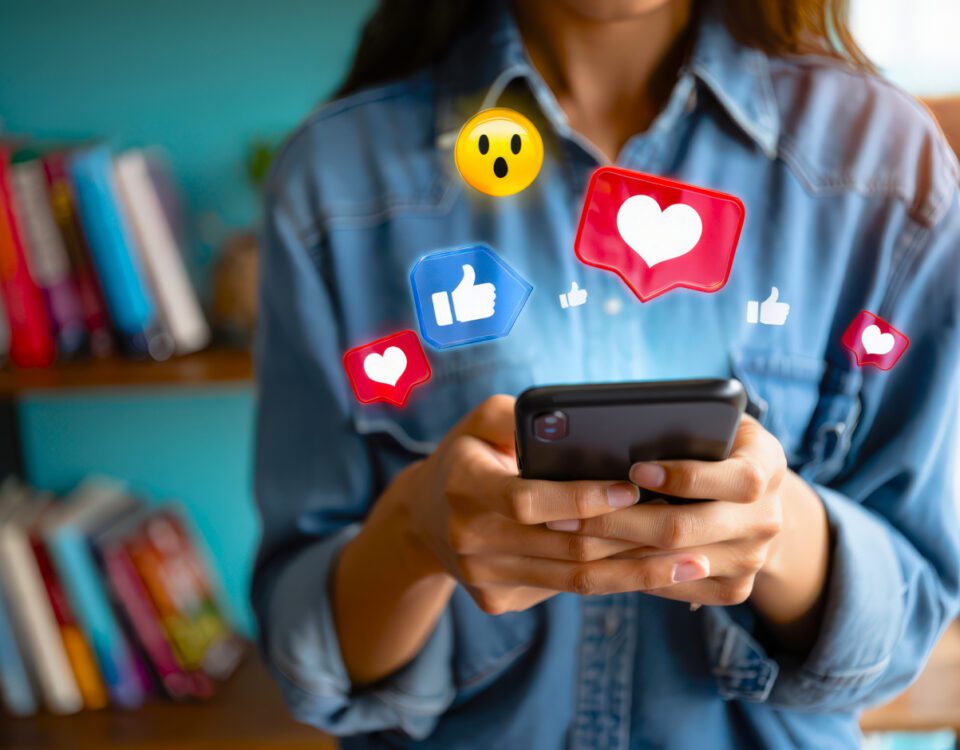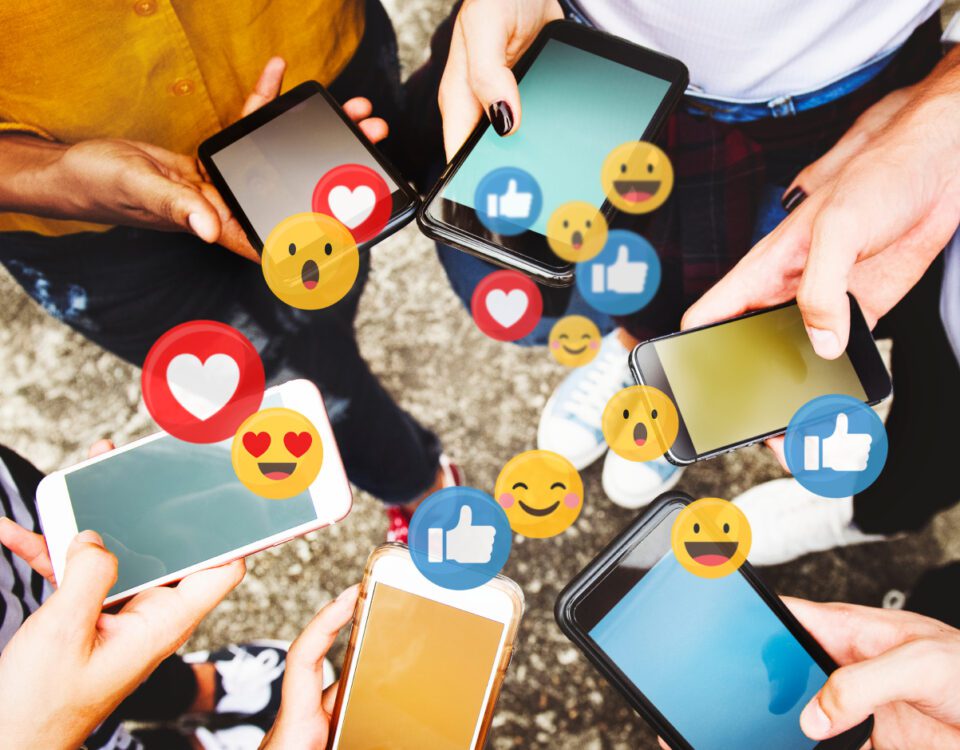
What Are the Ethical Issues of Using AI in Marketing?
Thursday 15th August
 by Beth Perrin
by Beth Perrin
Share
There’s no denying the sudden rise in artificial intelligence (AI) usage in recent times, especially in the world of social media, marketing and customer service - from chatbots and automated response systems to computer-generated scripts that can write content for you. In fact, after achieving a whopping 100 million users within just 2 months of its launch, ChatGPT became one of the fastest-growing apps in the world, being described as “the best AI chatbot ever released” by the New York Times.
However, here at 3sixfive, we pride ourselves on our human approach to Community Management, Sentiment Analysis and more expert services. In the majority of cases, we recommend that brands steer clear of bots if they want to build genuine relationships with their online communities - and according to a recent report from Sprout Social, a huge 98% of business leaders agree that companies need to better understand the potential of AI and machine learning technology for long-term success. So, can AI ever replace real people in marketing, and what potential problems might it trigger? Let’s take a look at the ethical issues of using artificial intelligence.
Data Privacy Concerns
Data privacy, protection and security are all major concerns for both brands and consumers. Businesses want to avoid hacking and cyber attacks, while customers want to know that their information is safe as personalisation and targeted ads become more popular. The majority of companies are confident that this is possible, with 94% of them believing that they can indeed achieve a balance between data collection for marketing while respecting customer privacy.
In addition, some of the biggest social media platforms - namely TikTok and Facebook - have been questioned on the ethical use of customer and user data. It’s important that safeguarding strategies are put in place to ensure there are no unintentional breaches of privacy or improper methods of collecting data, and businesses should ensure they are adhering to the relevant laws and regulations, such as the GDPR, at all times.

Algorithmic Bias
Unfortunately, AI isn’t immune to bias and discrimination. Since it learns from pre-existing opinions and information, it can pick up on negative stereotypes and other harmful biases relating to things like race and gender.
For example, in 2022, Pratyusha Ria Kalluri, a graduate student in artificial intelligence at Stanford University in California, asked an AI tool to generate an image of an “American man and his house”. Following this prompt, it reportedly generated an image of a pale skinned person in front of a large, colonial-style home. Then, when she asked for an image of an “African man and his fancy house”, it produced an image of a dark-skinned person in front of a rickety mud hut, despite the inclusion of the word “fancy” in the prompt, suggesting that it had picked up stereotypical ideas about what an African American person and location should look like.
Similarly, in an analysis of more than 5,000 AI-generated images, Bloomberg found that the ones associated with higher-paying job titles featured people with lighter skin tones, and that the results for most professional roles were male-dominated. Sasha Luccioni, a researcher in ethical and sustainable AI at software development firm Hugging Face, said: “[AI] definitely doesn’t represent the complexity, heterogeneity and diversity of cultures”.
For this reason - among others - we would recommend that you steer clear of using AI-generated images in your brand’s marketing materials, and instead use real photos and/or designed graphics to promote your products and services. Not only will this avoid the possibility of biases and discrimination like those mentioned above, but it will also represent your brand and its products in the most realistic and authentic way.
Content Plagiarism
Plagiarism is another big concern when it comes to AI. Naturally, as they can’t think for themselves, bots have to learn everything they know from other sources on the internet, meaning they’ll often duplicate work from other creators - whether that’s written copy or artwork. This is causing a lot of instability and uncertainty in copyright law, because it’s currently hard to know who really owns the rights and permissions for artificially created content and artwork.
While it’s fine to ask an AI to help with initial ideas for your social media posts, marketing messages and blogs, it’s always best to write your content yourself so you can guarantee that it’s 100% original work and can always be traced back to you and your business specifically. Bots are undeniably getting better at replicating other people’s tone of voice, but nobody can truly write in your style as well as you can - so to create unique content that really represents your brand and sets it apart from its competitors, make sure to only use AI sparingly in this department.
Misinterpretation of Messages
Unlike real humans, chatbots rely on specific cues and combinations of keywords to trigger their responses, which means they sometimes struggle to understand what a customer is trying to say. If someone asks a question that isn’t in a bot’s database or submits a query that it doesn’t recognise, it may not respond correctly (or at all!). The same goes for slang, abbreviations, misspellings and other informal language features, which present further difficulties for chatbots.
Misinterpretation doesn’t just apply to customer service requests either - it’s also an issue when bots are used for automatic content moderation. Offensive comments can sometimes slip through the net, and on the flipside, comments that don’t actually violate a brand or creator’s community guidelines can sometimes be incorrectly detected as such, causing them to be deleted. This can even lead to the accidental suspension of a user’s account, which can understandably cause disappointment for members of your online community.
A similar problem can be seen when it comes to Sentiment Analysis too. The majority of sentiment tracking systems rely on NLPs (Natural Language Processors) to detect the emotions behind words and phrases, but they often get this wrong, resulting in positive comments being sorted into the negative category and vice-versa. AI-based sentiment trackers can struggle with:
• Sarcasm, irony and exaggeration
• Slang terms and informal language
• Regional dialects and accent phonetics
• Spelling/grammatical errors
• Industry-specific terms and jargon
• Emojis and other symbols
In contrast, our unique Human Insight service involves manually monitoring the sentiment of your brand’s incoming comments to determine how it’s really perceived by the public. It’s the only sentiment tracking system on the market which is run by real people, not bots!

The Impact of AI on Customer Service
The ethics of AI also come into play when considering your brand’s customer service strategy. If a customer wishes to voice a serious complaint or concern, the last thing they want is to be met with a cold, rigid response from a robot that can’t empathise with their situation. This will only further their frustration, and will give the impression that your business doesn’t care about what its customers have to say.
Despite the indisputable advances in AI technology, chatbots are still unable to feel real human emotions and therefore can’t truly understand the frustration caused by real-life situations, leaving customers feeling disregarded and disappointed. CGS’ Customer Service Chatbot Channel Survey revealed that:
• 86% of consumers prefer interacting with a human over a bot
• 71% of consumers say they would be less likely to use a brand if they knew it didn’t have real customer service agents available
• 50% of consumers believe that chatbots and virtual assistants make it harder to get their issues resolved
Likewise, when a fan of your brand shares a positive experience they’ve had with your product on social media or another digital platform, they expect to be met with the same positive energy. But because bots can’t understand human emotions, they can’t display excitement or enthusiasm the same way a human can, making it very difficult for them to form close connections with your audience and celebrate successes.
Ethical Influencer Marketing
Going forward, brands are likely to use AI to help them recruit influencers, and will be able to predict the success of a collaborative campaign using past data. In fact, a survey conducted by SocialPubli in September 2023 revealed that 76% of marketing agencies and 52% of influencers were already using some form of AI to analyse social data, find partnerships or support content creation. Another benefit of AI in the influencer marketing space is its ability to detect fraudulent accounts and behaviours like fake followers and engagement, helping brands partner with authentic and trustworthy influencers.
However, brands need to be careful that the influencers they choose to collaborate with aren’t using AI to enhance, exaggerate or manipulate the results they’ve achieved using their product or service - such as using photo or video editing tools - as this is of course false advertising and can lead to customer mistrust.
Brands using AI to source influencers should also make sure they vet them manually after finding them in order to double check that they’re definitely a good fit, rather than entering a partnership based purely on an AI-generated recommendation and without confirming these details beforehand.
Summary
In conclusion, it’s clear that AI can help us automate some of the simpler tasks within our marketing strategies - but the empathy, understanding and creativity of real people can’t be replaced, which is why a human approach is still the best way forward. The emotional intelligence and flexibility required to build strong connections simply can’t be replicated by robots, so your Community Management, Sentiment Analysis, Live Chat and more should all be carried out by a real team like ours. Get in touch to find out how we can assist your brand!








